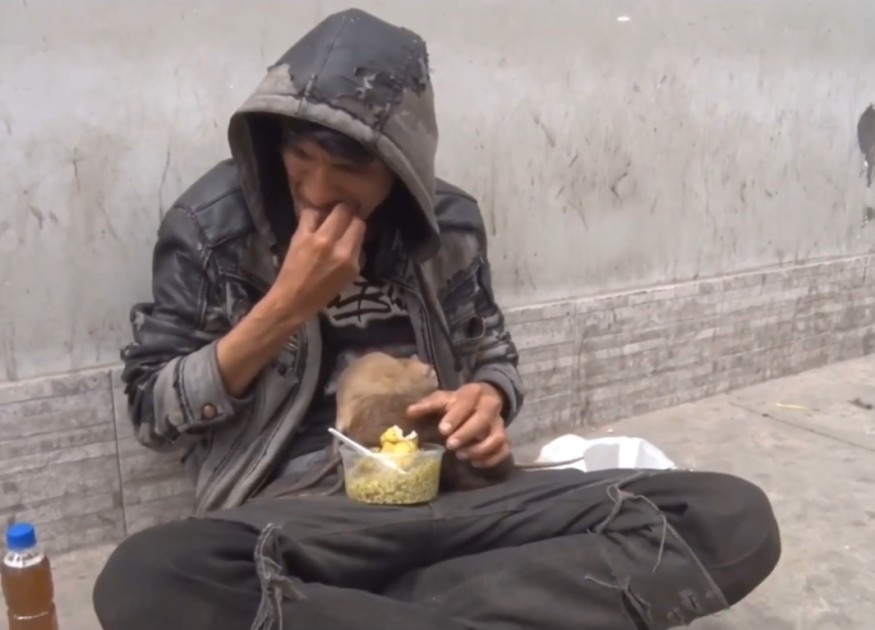The Untold Story of Rat Man
Peru is known for its beautiful views and world-famous tourist attraction Machu Picchu. It is also home to countless butterfly species. Lima, Peru's capital and largest city, offers some of the best Peruvian plates and delicacies.
Lima boasts full-flavored Peruvian cuisine, with traditional picks such as Ceviche, Lomo Saltado (Stir Friend Beef), Aji de Gallina (Creamy Chicken), and Papas a la Huancaina (Potatoes in Spicy Cheese Sauce).
There is, however, a secret attraction in Lima that most tourists have never heard of or seen.
Rats are commonly associated with diseases and contamination. Just the sight of a single rat scuttling inside your home is enough to frighten you out of your wits.
Miguel Angel Silva, Lima's famous Rat Man, begs to differ.
Silva, who grew up in the hustle and the bustle of the city capital, is known for eating and living with over 100 rats. He keeps rats of different colors and sizes as his furry friends.
Locally known as the Rat Man, Silva can be seen walking on the busy city streets with a selection of rats sitting on his shoulders as part of his pets' "daily routine."

In an interview, Miguel says he and his pets get plenty of criticism and discrimination from people who view his rodent companions as pests.
Silva shared he constantly defends his choice of pet, saying people should not judge the rats based on common societal views. He said his pets are safe and clean, adding "I wash them every day."
Miguel Angel Silva got his first rodent pet when he saved one from being killed by a friend. He said he hid the rat in the roof until it "became his friend."
Silva and his furry pets are often seen performing tricks he taught them on the busy streets of Lima.
How Safe are Pet Rodents?
Pet rodents such as hamsters and rats are known for being jovial animals that make great pets for the right family.
However, even clean-looking and well-fed pet rodents can carry germs that can make people sick.
Rodents, like all domesticated animals, need frequent visits to the vet. People with compromised immune systems should also refrain from touching the pets due to a greater risk of contracting diseases.
Rats, which are considered exotic pets, can shed or contaminate germs in areas where they live or roam. Thus touching or eating food your pet rat has come in contact with is not advisable.
Rodents can transport food-borne pathogens through their saliva, urine, and droppings. They take care of their bathroom needs anywhere. Rats can produce over 50 half-inch droppings a day, making them a dangerous virus carrier.
Rodents can carry a huge number of diseases such as:
Hantavirus Pulmonary Syndrome is a virus that spreads through direct contact or breathing in dust contaminated by their droppings. Symptoms include fever, chills, shortness of breath, and fluid in the lungs.
Leptospirosis is a bacterial disease that can be contracted by drinking or eating food or liquids contaminated with rodent urine. Symptoms can include meningitis, liver failure, and death.
Salmonellosis is an infection that comes from eating food contaminated with rodent droppings. Symptoms can include diarrhea and in some cases, hospitalization.
Subscribe to Latin Post!
Sign up for our free newsletter for the Latest coverage!













